A legendary lion known as Blondie, recently fitted with a GPS collar by Oxford University researchers, has been fatally wounded by trophy hunters just outside Zimbabwe’s Hwange National Park.
The five-year-old male was described as a breeding lion in his prime, and was the subject of an Oxford-led long-term study tracking lion behavior, ecology, and pride dynamics. But his strength, genetic value, and central role in a thriving pride also made him a prime target for hunters in search of a hollow victory.
Blondie left behind 10 cubs and three adult females.
Outrage erupts over the shooting of Blondie, a 5-year-old lion studied by Oxford, by trophy hunters in Zimbabwe
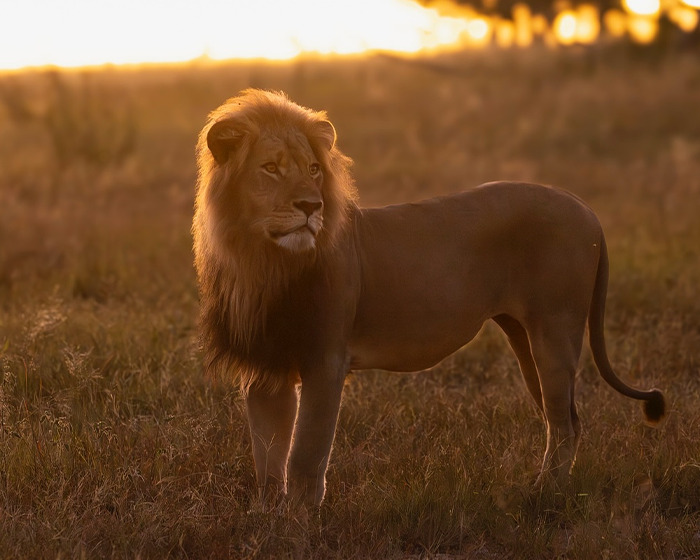
Image credits: Searching For Spots/Facebook
The shooting occurred during the week of June 29. According to reports, Blondie was lured out of the safety of Hwange—where hunting is prohibited—using chunks of meat tossed from the back of a truck. Moments later, he was fatally shot.
A photograph showing the armed trophy hunter kneeling beside his body was briefly posted online, before being hastily deleted.
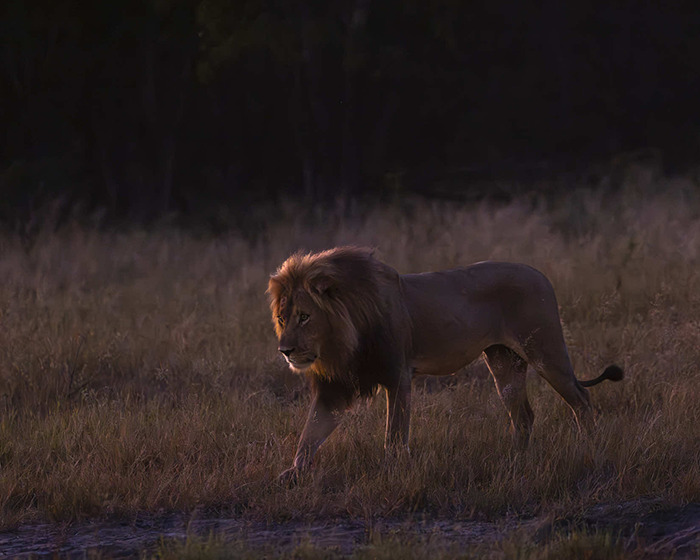
Image credits: Searching For Spots
The tragedy came just three months after scientists placed a GPS collar on Blondie to track his movements and monitor pride dynamics. That same collar, which researchers hoped in vain would have been a visual deterrent for any ethical hunter, made little difference.
View this post on Instagram
“That Blondie’s prominent collar did not prevent him from being offered to a hunting client confirms the stark reality that no lion is safe from trophy hunting weapons,” said Simon Espley, CEO of Africa Geographic, the organization that sponsored Blondie’s collar.
“He was a breeding male in his prime, making a mockery of the ethics that ZPGA regularly espouses and the repeated claims that trophy hunters only target old, non-breeding males.”
Despite ethical and ecological concerns, trophy hunting remains a profitable business in the country

The Zimbabwe Professional Guides Association (ZPGA) is a self-regulatory body that represents “professional hunters” in Zimbabwe. While the group works closely with the government, it operates as an independent industry group.
At the crux of the issue is a debate on the economic necessity surrounding the practice of trophy hunting.

Proponents claim the practice helps fund conservation and local communities. According to official data, trophy hunting generates around US$200 million annually across Africa, with Zimbabwe earning about US$20 million per year from it.
Despite this, reports indicate only 3% of these funds reach local communities, with the majority of the funds being siphoned off by hunting outfits, brokers, and corrupt officials.
Detractors argue that the revenue generated from hunting could easily be replaced by photo safaris, serving as a more sustainable and ethical source of money. Despite this, hunting continues.
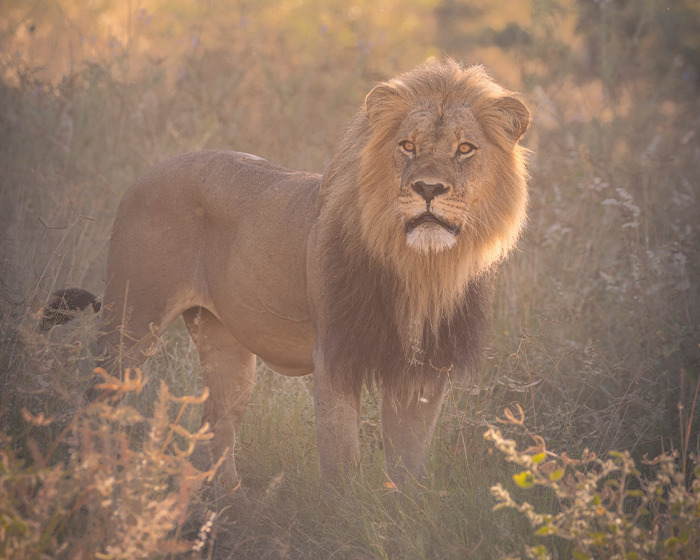
Image credits: Searching For Spots/Facebook
According to Craig Packer, director of the Lion Research Center at the University of Minnesota, areas with the highest hunting intensity suffer the steepest local declines in lion numbers.
This occurs due to trophy hunters overwhelmingly targeting large, prime adult males—exactly the kind of lion that drives pride stability and genetic health. Removing these dominant males leads to pride takeovers, infanticide, and higher cub mortality.
A fate that’s now likely to befall Blondie’s pride.
Netizens are calling for the identities of those involved to be made public, and for them to face justice
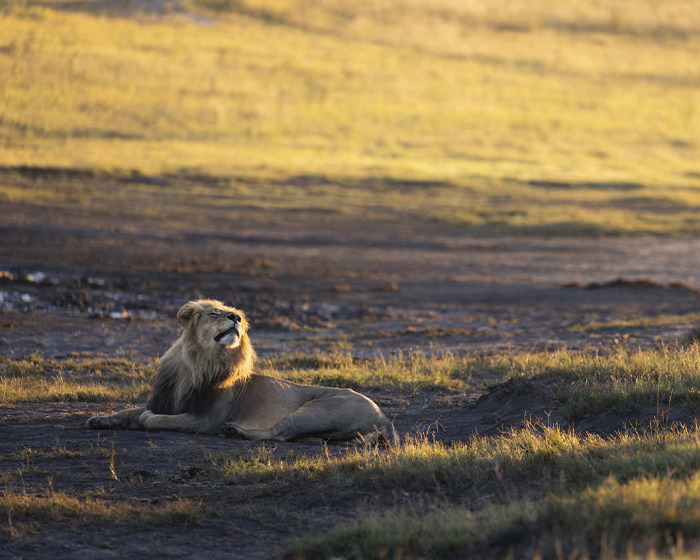
Image credits: Searching For Spots
As Packer indicated in 2015, lion numbers on the continent have plummeted from about 100,000 in the 1980s to fewer than 30,000—an 82% crash.
The hunter involved has been located, but his identity has been protected. When confronted by Africa Geographic, he allegedly refused to elaborate on the details, saying only that the hunt had been conducted “ethically and legally.”
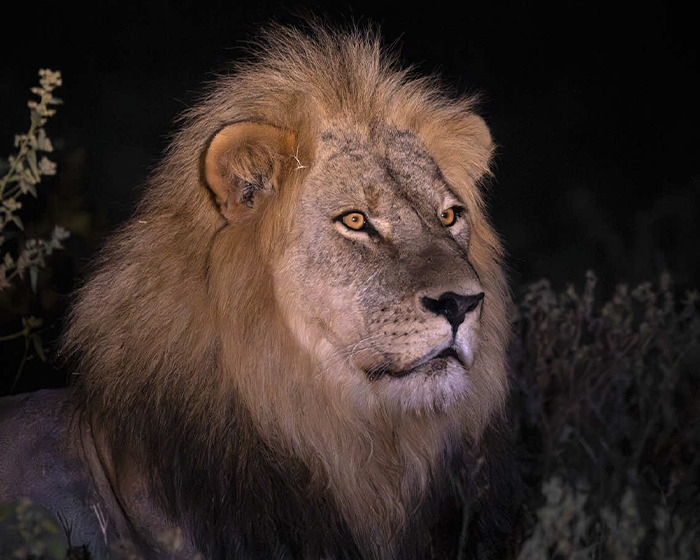
Image credits: Searching For Spots
Feeling powerless, people online are now calling for the identities of those involved to be made public, and for them to face justice.
“Name and shame these vile people, don’t pixelate their faces,” wrote a commenter. “They dare to k*ll these beautiful animals? They belong to the world, to nature.”
“As disgusting as this event was, how come we are allowed to view the body of a lion shot for no good reason, but the hunters… have their faces blacked out?” another asked.
For many, the loss of Blondie is more than a singular tragedy—it’s an indictment of a cruel, profit-driven system that continues to fail Africa’s wildlife.
“This must end”: Blondie’s passing has driven many to call for a complete ban on trophy hunting










from Bored Panda https://ift.tt/usFOHYG
via IFTTT source site : boredpanda